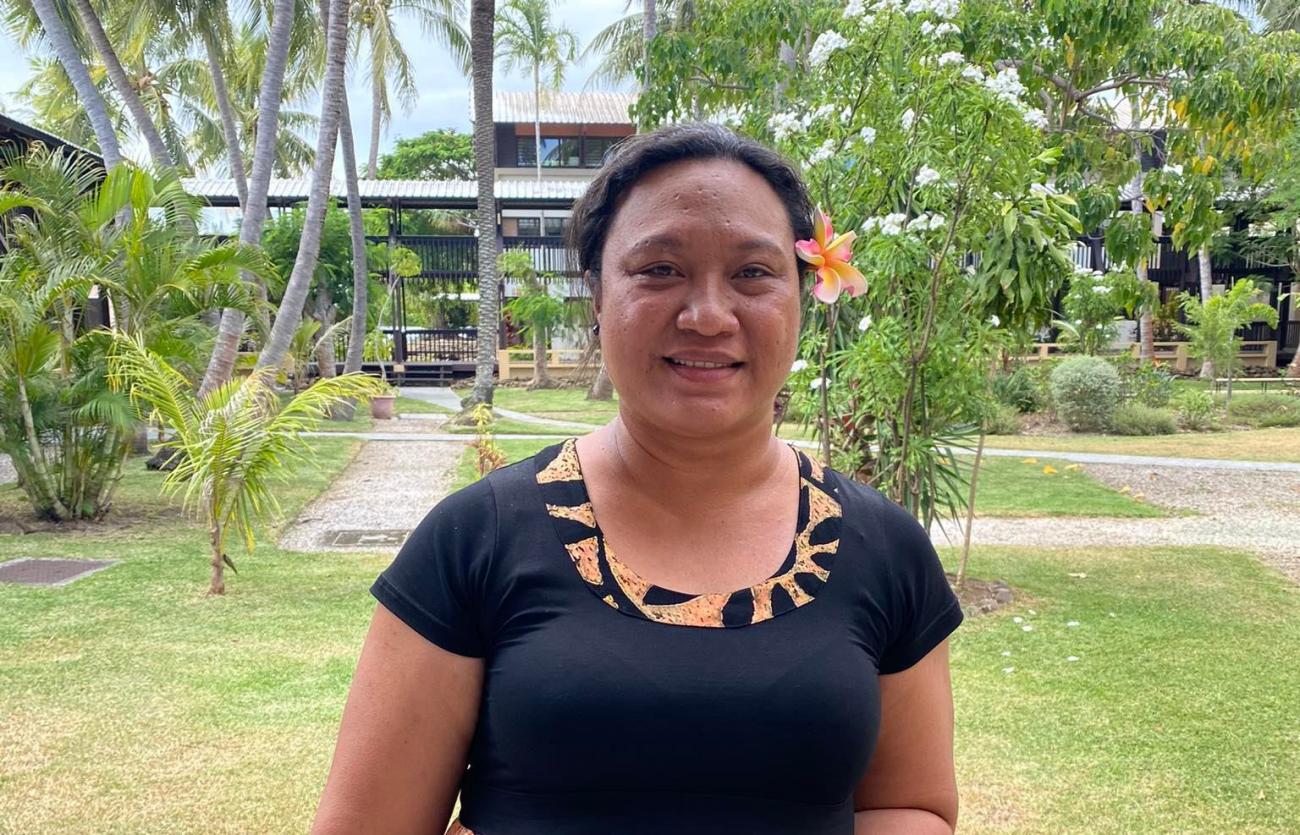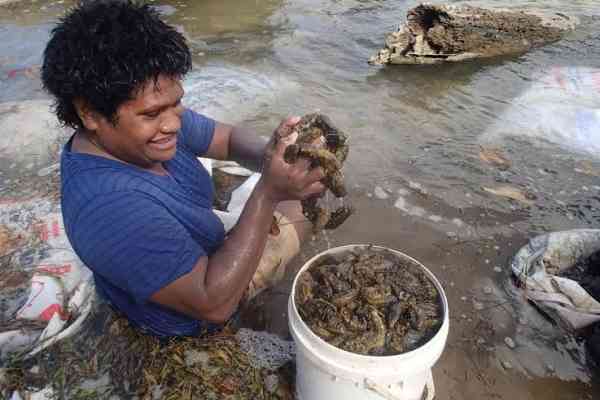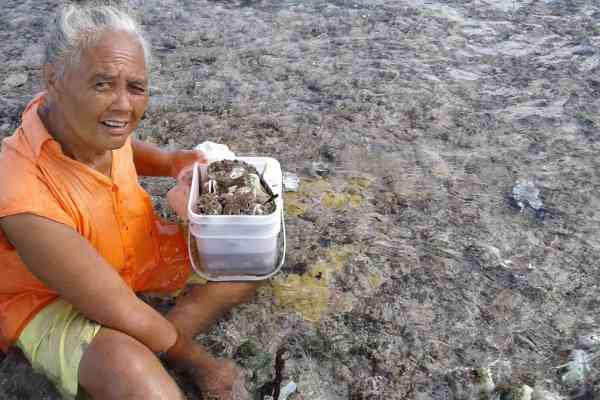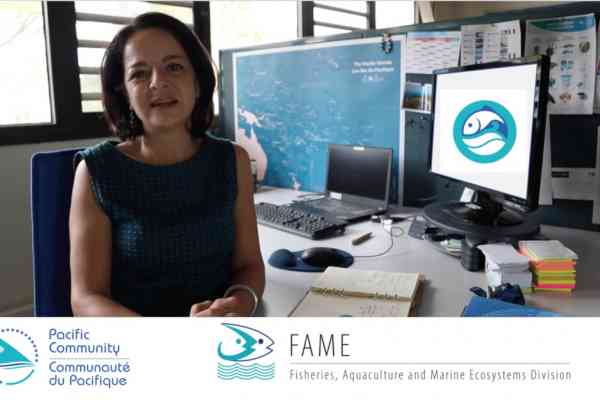When speaking to Glory Fuimaono, the first thing that strikes you is her calm demeanour and quiet confidence; she radiates an air of trust and integrity. Glory, a Samoan woman, has risen through the ranks to become one of the most critical figures at the Ministry of Fisheries and Agriculture in Samoa, her home country in the Pacific.
Growing up with a single mother with two older siblings, Glory learned the value of hard work and determination from a young age. Today, she is the Assistant Chief Executive Officer for Legal Services and the youngest manager within the Ministry. Glory holds in high regard her senior colleagues and the knowledge they bring to the table, but she is also confident in her own abilities:
“It's truly a blessing to be working amongst Agriculture and Fisheries experts. While I deeply respect those who are senior and have many years of experience in the Ministry, I believe, when my professional capacity plays in critical and complex work-related situations and relative issues I have to stand my ground.”
Glory's journey to this point in her career was not an easy one, but her determination to succeed and to be able to influence a positive change in her community led her to earn a law degree and to become a respected figure in her field.
"I’ve always showed interest in reading and writing from a young age, which eventually became a habit which inspired me to take law. Additionally, it was around the same time my brother was nearing completion of his law studies. I guess it was a trend to follow your older siblings’ footsteps then and the limited number of scholarships and choice of tertiary institutions offered in my time.”
Glory was hired by a large Ministry that comprises nine different Divisions, which include Fisheries. Her role at the Ministry involves overseeing all of these Divisions. She has expressed a strong desire to acquire more knowledge and expertise in any of the Divisions that she manages, including Fisheries.
The SPC online course on drafting laws for Coastal Fisheries
In July 2022, the Pacific Community (SPC) in collaboration with the University of California College of the Law, San Francisco in California, launched the first SPC online course on legislative drafting for Coastal Fisheries. The Legislative Drafting course is a self-paced online course designed for fisheries policy and legal professionals interested in learning how to draft regulations, decrees, or other types of legislation on coastal fisheries.
As the only person overseeing the legal services in the Ministry of Fisheries and Agriculture, Glory was nominated by the Ministry to participate in the online course, on behalf of Samoa Fisheries. She took part in the online course alongside 29 other participants representing seven additional countries and territories.
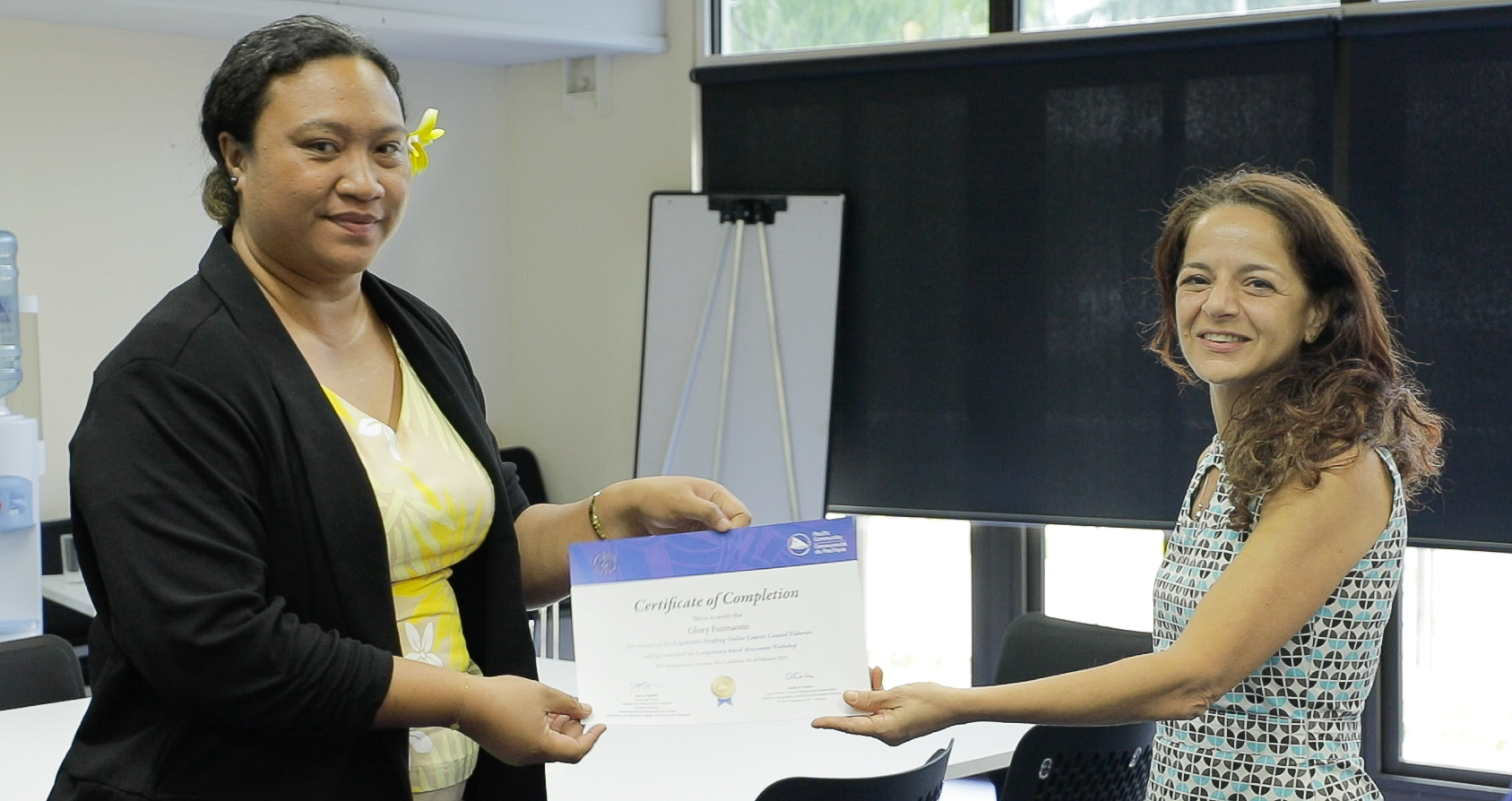
The first part of the course used short video lectures, quizzes, exercises, and reading. Participants are asked to complete the course from their workplace at their own pace. Glory explained that this was her first exposure to coastal fisheries, and she found it “very helpful, educational, and informative”.
After completing the first phase of the course, which is a “light introduction” to writing coastal fisheries laws, the course switches to a more writing-intensive second phase, where participants are taught to draft their own regulations and receive personalised feedback along the way.
“With this course, I now have a more in-depth knowledge and understanding of coastal fisheries context and terminology. For instance, ‘conservation and management measures’, a term commonly referred to in our current mandate which is the overarching approach to managing marine resources., I wanted to understand the dynamics and parameters of how it is understood and properly applied".
The face-to-face final assessment
After completing the online portion of the course, Glory left her busy schedule in Samoa for a week in February 2023 to attend the competency-based assessment workshop in New Caledonia. This is the end of the course. In fact, among the 30 people who finished the first phase, 20 (from five PICTs) completed the second phase and were invited to attend the final assessment workshop (13 people in person and seven on Zoom). The face-to-face meeting was also a great opportunity to exchange ideas on their draft coastal fisheries regulations.
The course is designed to bring together lawyers and non-lawyers: from fisheries officers in the policy or legal teams of the Ministry of Fisheries, to those who draft legislation in the Attorney General's Office. This mix is important because they are working together to give strong support to their coastal fisheries management work. Each participant brings a small piece to the puzzle.
Glory shared how this course helped her;
" We have long-outstanding fisheries-related issues that need better and effective enforcement and most importantly policy consideration and decision. One of the reasons why it hasn't moved yet is understanding the issues, the policy decision and how these issues will be resolved. This course was fundamental, and it will be instrumental in the drafting of coastal fisheries regulation, should it resolve the issue etc."
Glory's determination is undeniable. Her faith-based belief and unwavering drive to succeed propel her forward and allow her to overcome every hurdle she encounters.
To quote Glory, "In my experience, becoming a lawyer is challenging like any other career, however, it is thoroughly satisfactory when you see things come to pass that you were a part of which have influenced positive change in your community.”
Keep an eye on Glory, in this writer's opinion she is bound for greatness….
Thanks to the support of the New Zealand Ministry of Foreign Affairs and Trade, SPC has been able to train over 100 government officers in coastal fisheries legislation in order to assist their countries in enhancing their national fisheries management plans.
By Toky Rasoloarimanana and Ariella D’Andrea
